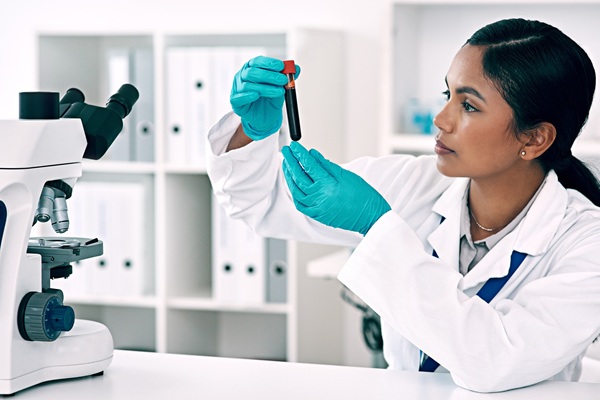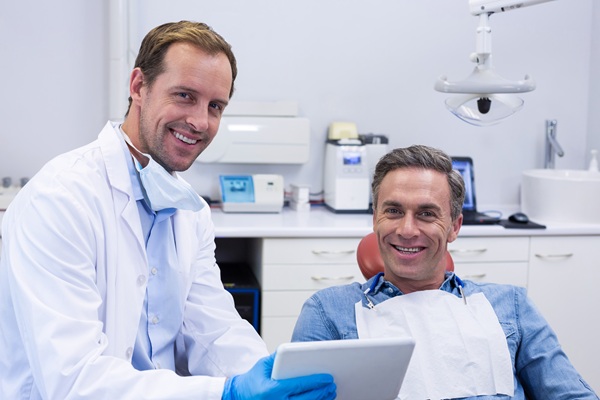Allergy Testing: What To Expect

Allergy testing is beneficial for a variety of reasons, with the most important being it could save your life. Although many allergies do not present themselves until an allergic reaction occurs, regular testing can often prevent them. Read on to learn more about allergies and how they are diagnosed.
Types of allergies
Allergies occur when the body comes into contact with any foreign substance the immune system identifies as harmful. During an allergy attack, the immune system produces antibodies to protect itself from the trigger. There are many different types of allergies, including seasonal, food, drug, insect sting, and more.
A seasonal allergy is a type of allergy that corresponds with a particular season, typically spring or winter. It is associated with an increase in pollen in the air. Symptoms usually include sneezing/coughing, congestion, watery eyes, and itchiness. A food allergy is an allergic response that occurs after eating a specific food or drink. A drug allergy occurs when a person’s immune system is sensitive to a specific medication, causing nausea, difficulty breathing, and dizziness. People with an insect sting allergy are allergic to the venom of bees and other insects. Symptoms are severe, involving swelling, difficulty breathing, and itchiness.
How allergies are diagnosed
When treating an allergy, a primary care physician’s priority is determining what the patient is allergic to and the severity of their symptoms. The physician will look at the patient’s airway and ability to breathe, making sure to look out for the characteristic swelling seen in vital areas like the lips, tongue, and throat. They will also look for any skin symptoms like itchiness, redness, or swelling.
A physician will typically draw blood to run necessary labs and ask detailed questions of the patient. Patients should take special care to disclose any of the following:
- Exposures: Any substance the patient could have eaten, injected, or somehow encountered before experiencing their allergies.
- Timing: The period between the substance and the beginning of the patient’s symptoms.
- Physical activity and environment: Extreme temperatures and physical activity may trigger anaphylaxis.
For optimal treatment, patients should be as forthcoming as possible about any potentially relevant information. This will allow the physician to make the most accurate diagnosis while maximizing the patient’s chances of a speedy recovery and minimized symptoms.
What to expect
Anyone can have allergies. Though more common in children, they can manifest at any age. It is not uncommon for allergies to recur after years of remission. Though not a causal factor, stress can exacerbate allergic reactions by increasing histamine levels in the bloodstream. Allergy symptoms may multiply as a result.
Patients should expect to have their blood, urine, and stool taken for testing. Each test can help identify different allergies, while some may confirm a previous diagnosis. Patients who come in because of an allergy attack will be treated for their condition first and then tested for the allergy in question.
The right allergy treatment varies for each patient depending on their allergy cause and symptom severity. An epi-pen is essential for patients with severe allergic reactions to receive epinephrine. Furthermore, the physician may administer oxygen through a breathing mask and an IV for quick access to medications and fluids.
If the allergic reaction is less severe, the physician will treat the patient with various medications specific to their symptoms. For example, a prescribed topical cream or ointment may be able to take care of itchiness. Other symptoms that cannot be treated topically may require oral or IV medication. Although there is no cure for allergies, a primary care physician can help patients relieve their symptoms and advise them on avoiding allergy triggers.
Get tested for allergies early
Most people do not know they have allergies until an allergic reaction occurs. You can get tested for a list of allergies prior to this happening. Call our office at {{PHONE}} to learn more or schedule an appointment.
To learn more about our services, visit https://Southfloridadoctorsgroup.com or call our Pembroke Pines office at (954) 905-2432 to schedule an appointment.
Check out what others are saying about our services on Yelp: Allergy Testing in Pembroke Pines, FL.
Recent Posts
Blood work is an essential tool primary care providers use to assess overall health, diagnose conditions, and monitor ongoing treatment. Routine blood tests offer valuable insights into the body's functions, helping detect potential health issues early. Understanding the different types of blood work and their purposes can help clarify why PCP recommend these tests during…
Preventative care helps safeguard your health by providing early detection or interception of serious conditions or diseases. Maintaining a relationship with a preventative care practitioner can help keep you healthy year-round. Learning their role and how they stack against diagnostic care can help you determine whether consulting this type of practitioner is necessary.Preventative care practitioners…
Primary care is essential to your health maintenance, offering a comprehensive approach to your healthcare needs. Regular visits with a primary care provider help you manage various healthcare needs, from medication and chronic conditions to preventive services and screenings. Understanding the benefits of primary care and what to expect from a visit will help you…
Pap smears are routine screenings that check for abnormal cells in the cervix, which may indicate cervical cancer or other conditions. Getting these screenings helps detect these conditions early when they are easier to treat. Patients need to understand their results and when further screening is needed.Also known as a pap test, a pap smear…


